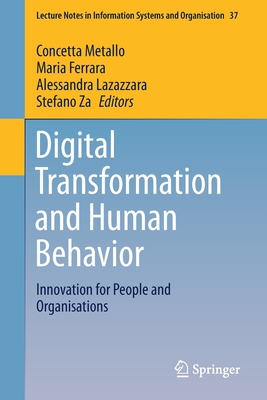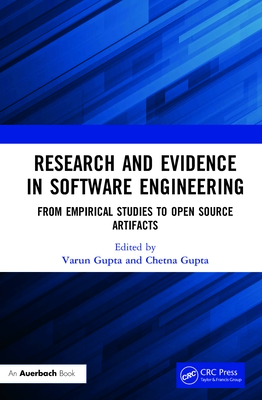Contemporary Empirical Methods in Software Engineering
暫譯: 當代軟體工程的實證方法
Felderer, Michael, Travassos, Guilherme Horta
相關主題
商品描述
This book presents contemporary empirical methods in software engineering related to the plurality of research methodologies, human factors, data collection and processing, aggregation and synthesis of evidence, and impact of software engineering research. The individual chapters discuss methods that impact the current evolution of empirical software engineering and form the backbone of future research.
Following an introductory chapter that outlines the background of and developments in empirical software engineering over the last 50 years and provides an overview of the subsequent contributions, the remainder of the book is divided into four parts: Study Strategies (including e.g. guidelines for surveys or design science); Data Collection, Production, and Analysis (highlighting approaches from e.g. data science, biometric measurement, and simulation-based studies); Knowledge Acquisition and Aggregation (highlighting literature research, threats to validity, and evidence aggregation); and Knowledge Transfer (discussing open science and knowledge transfer with industry).
Empirical methods like experimentation have become a powerful means of advancing the field of software engineering by providing scientific evidence on software development, operation, and maintenance, but also by supporting practitioners in their decision-making and learning processes. Thus the book is equally suitable for academics aiming to expand the field and for industrial researchers and practitioners looking for novel ways to check the validity of their assumptions and experiences.
Chapter 17 is available open access under a Creative Commons Attribution 4.0 International License via link.springer.com.商品描述(中文翻譯)
本書介紹了當代軟體工程中的實證方法,涉及多樣的研究方法論、人因因素、數據收集與處理、證據的聚合與綜合,以及軟體工程研究的影響。各章節討論了影響當前實證軟體工程演變的方法,並構成未來研究的基礎。
在介紹性章節之後,該章節概述了過去50年實證軟體工程的背景與發展,並提供後續貢獻的概覽,書籍的其餘部分分為四個部分:研究策略(包括例如調查或設計科學的指導方針);數據收集、生產與分析(強調來自例如數據科學、生物識別測量和基於模擬的研究的方法);知識獲取與聚合(強調文獻研究、有效性威脅和證據聚合);以及知識轉移(討論開放科學與產業的知識轉移)。
實證方法如實驗已成為推進軟體工程領域的強大手段,提供有關軟體開發、運作和維護的科學證據,同時也支持從業者在決策和學習過程中的需求。因此,本書同樣適合希望擴展該領域的學術界人士,以及尋求新方法來檢驗其假設和經驗的產業研究人員和從業者。
第17章可在 link.springer.com 上以創用CC 4.0國際授權的方式開放訪問。
作者簡介
Michael Felderer is a professor at the Department of Computer Science at the University of Innsbruck, Austria, and a guest professor at the Department of Software Engineering at the Blekinge Institute of Technology, Sweden. His fields of expertise and interest include software quality, testing, software processes, data-driven engineering, software analytics and measurement, requirements engineering, model-based software engineering, and empirical research methodology in software and security engineering. His research has a strong empirical focus also using methods of data science and is directed towards development and evaluation of efficient and effective methods to improve quality and value of industrial software systems and processes in close collaboration with companies. He has more than 10 years of industrial experience as a senior executive consultant, project manager and software engineer and is an internationally recognized member of the software engineering research community.
Guilherme Horta Travassos is a professor at the Systems Engineering and Computer Science Program (PESC), COPPE/Federal University of Rio de Janeiro, a CNPq Researcher and an ISERN member. He leads the Experimental Software Engineering Group at COPPE/UFRJ since 2001, after coming back from a post-doctoral at UMCP/USA and NASA/SEL. His research interests concern experimental software engineering and the engineering of contemporary software systems (Internet of things, industry 4.0, and context-awareness, among others) and involve software quality, software verification, validation and testing, ubiquitous systems, simulation, and environments and tools to support the development and evolution of experimentation and development methods in software engineering. He also intensively collaborates with the software industry through research and development projects at the COPPE/UFRJ.
作者簡介(中文翻譯)
邁克爾·費爾德爾(Michael Felderer)是奧地利因斯布魯克大學計算機科學系的教授,同時也是瑞典布萊金厄科技學院軟體工程系的客座教授。他的專業領域和興趣包括軟體品質、測試、軟體流程、數據驅動工程、軟體分析與測量、需求工程、基於模型的軟體工程,以及軟體和安全工程中的實證研究方法。他的研究具有強烈的實證焦點,並使用數據科學的方法,旨在與企業密切合作,開發和評估提高工業軟體系統和流程品質與價值的有效且高效的方法。他擁有超過10年的工業經驗,擔任高級顧問、專案經理和軟體工程師,並且是國際公認的軟體工程研究社群成員。
吉爾赫梅·霍爾塔·特拉瓦索斯(Guilherme Horta Travassos)是巴西里約熱內盧聯邦大學COPPE系統工程與計算機科學計畫(PESC)的教授,CNPq研究員及ISERN成員。自2001年以來,他一直領導COPPE/UFRJ的實驗軟體工程小組,此前他曾在美國馬里蘭大學(UMCP)和NASA/SEL進行博士後研究。他的研究興趣涉及實驗軟體工程和當代軟體系統的工程(物聯網、工業4.0和情境感知等),並涵蓋軟體品質、軟體驗證、驗證與測試、無所不在的系統、模擬,以及支持軟體工程中實驗和開發方法發展與演變的環境和工具。他還通過COPPE/UFRJ的研究與開發專案與軟體產業進行密切合作。











